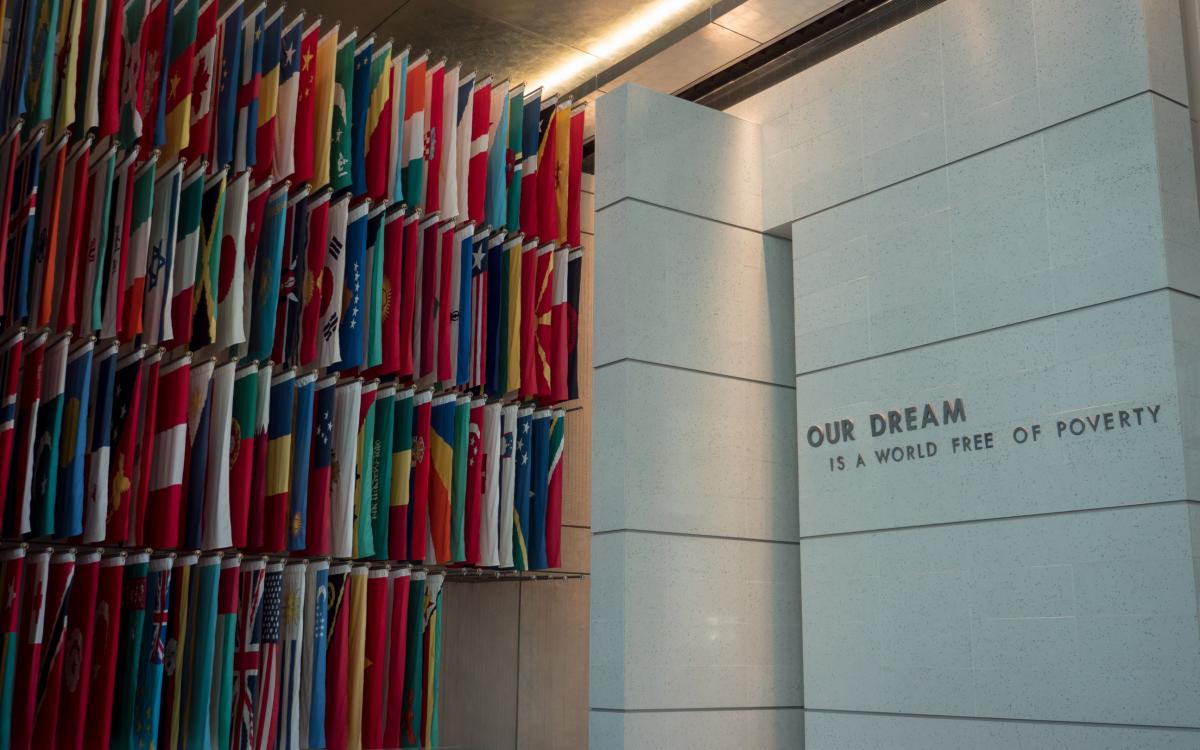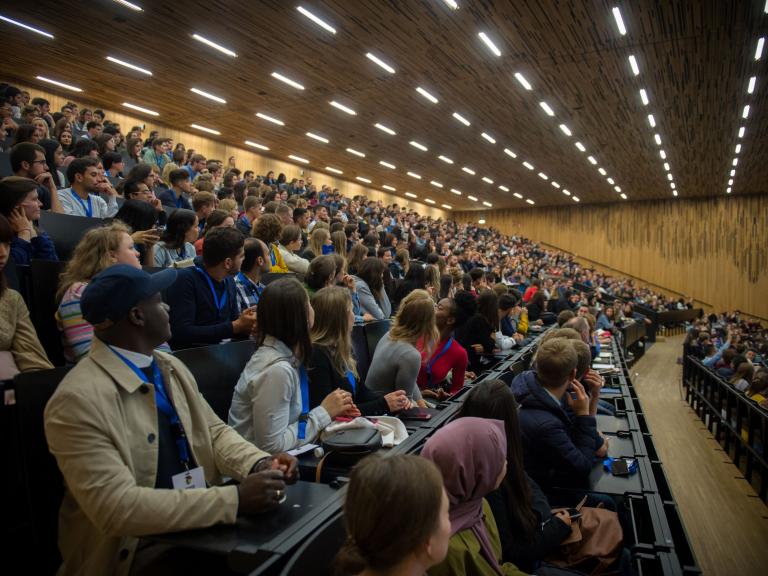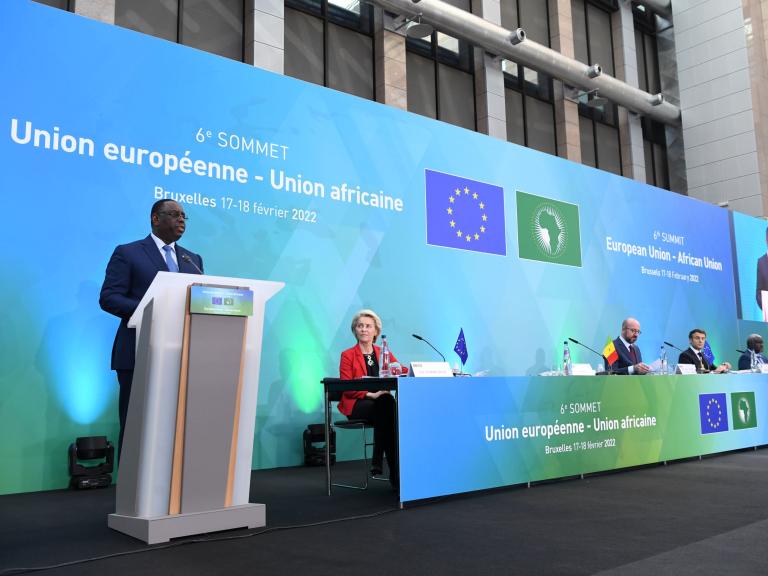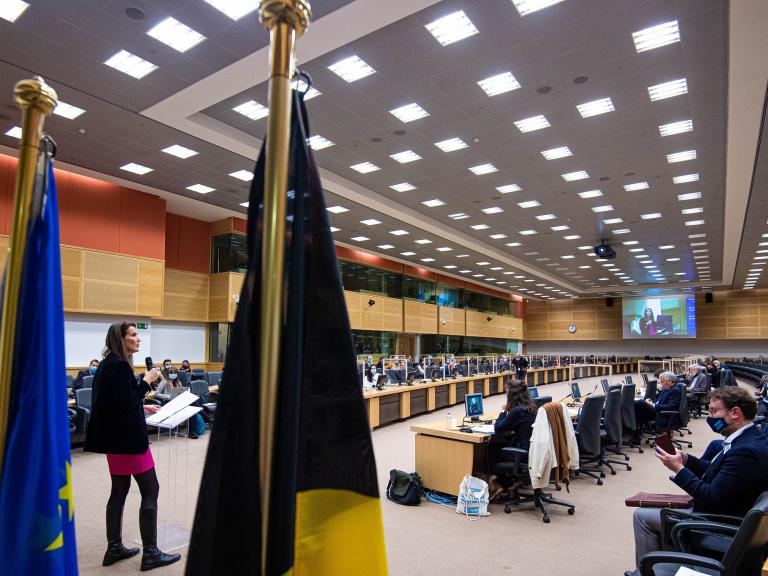-
Last updated on

View into the World Bank building in Washington. © Shutterstock
SDG17 describes how rich countries can help poorer countries achieve the Sustainable Development Goals (SDGs). That may take the form of financial and technological assistance, but may also be carried out by means of capacity building, trade, policy coherence and broad partnerships, including with the private sector and civil society. SDG17.4 specifically talks about ‘debt sustainability’: the financing, cancellation and rescheduling of debt.

Spreading debt repayments
A good example of the latter is the Debt Service Suspension Initiative (DSSI). When the coronavirus crisis erupted in 2020, the poorest countries were the main ones to suffer as a result of the sluggish global economy and the impact on the health of their populations. That is why the World Bank and the International Monetary Fund (IMF) urged the G20 to suspend the servicing of those countries' debts. From the beginning of the coronavirus crisis, Belgium also advocated a suspension of debt repayments by the least developed countries.
Such a suspension of debt servicing was not a cancellation of debts as such, but it did allow debt repayments to be spread over a five-year period (three years for the first period), following a period of one year in which no debt servicing needed to take place. In this way, beneficiary countries had more resources at their disposal to combat COVID-19.
The Paris Club
The G20 and the Paris Club took up the challenge. Since 1956, the Paris Club has brought together the governments of the leading industrialised nations, including Belgium. The objective of the challenge was to devise coordinated and sustainable solutions to the payment problems of countries that have borrowed money.
A total of 73 countries were eligible for the Debt Service Suspension Initiative (DSSI) and 48 of them actually participated in the initiative. From May 2020 to December 2021 inclusive, debts totalling $12.9 billion were suspended. The amount of the Paris Club countries came to $4.6 billion. Portugal and Turkey – which are not members of the Paris Club – also joined the DSSI.
For Belgium, the total amount comes to $84.7 million – some 78.9 million euros – spread over three periods. The countries that benefited from the suspension by Belgium were: Cameroon, the Republic of Cabo Verde, Chad, Djibouti, Kenya, Maldives, Nepal, Pakistan, São Tomé and Príncipe and Zambia. These also included a number of partner countries of the Belgian Development Cooperation, namely Burkina Faso, Mali, Mozambique, Niger, Senegal and Tanzania.
According to the World Bank, the DSSI has done well in helping the poorest countries fight the pandemic and save the lives and incomes of many vulnerable people.
The DSSI involved both the FPS Finance and the FPS Foreign Affairs.
More on Cooperation

EU: Erasmus+ fosters European and world citizenship
Geneviève Cochez, Erasmus+ coordinator at Ghent University, knows better than anyone: Erasmus+ has fundamentally improved progra...

EU-AU summit: two unions, one vision
In Brussels, the European and African Union developed a hopeful plan for the future that should bring prosperity and stability t...

EU: more democracy in practice
Geography teacher Rafik Kiouah talks about his participation in a Belgian citizens' panel on a more democratic EU as part of the...
